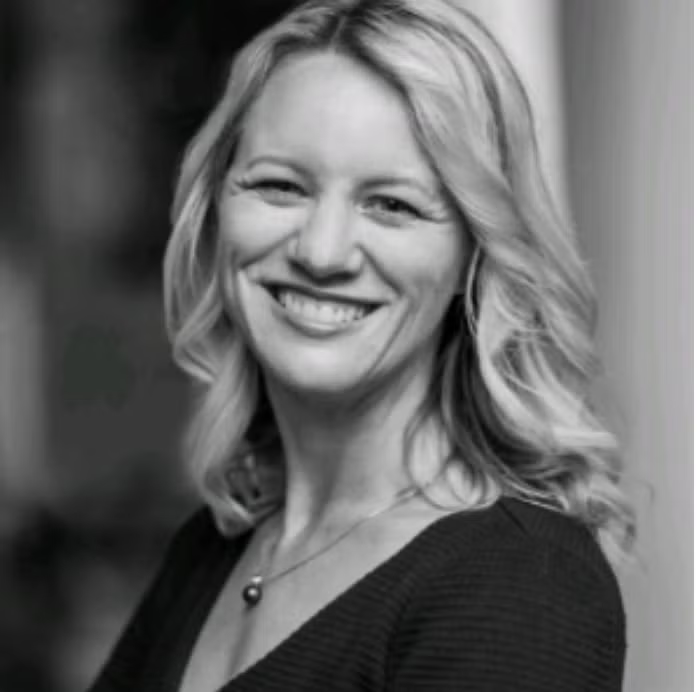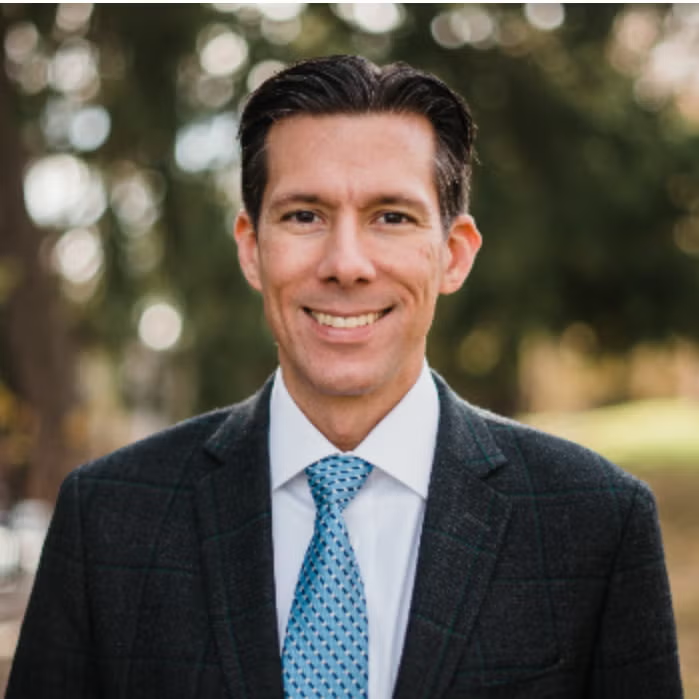In our final concentration chair interviews, we sat down with the two co-chairs of the GPS concentration. Professor Paul Miller and Professor Jodi Vittori are Concentration Co-Chairs and Professor of the Practice of International Affairs.

Professor Jodi Vittori is a GPS Concentration Co-Chair and Professor of the Practice of International Affairs. As a practitioner, she served as the US Research and Policy Manager for Transparency International’s Defense and Security Program, senior policy advisor for Global Witness, and Lieutenant Colonel in the US Air Force. Dr. Vittori currently teaches graduate courses on Corruption vs Good Governance and the Practice of Policy Tradecraft.

Professor Paul Miller is a GPS Concentration Co-Chair and Professor of the Practice of International Affairs. Prior to MSFS, Dr. Miller served as a Director at the National Security Council, worked as an intelligence analyst for the CIA, and is a US Army veteran. He currently teaches graduate courses on Justice and War, the Practice of Policy Tradecraft, and International Relations Theory and Practice. Learn more about Dr. Miller and Dr. Vittori, the GPS concentration, and their thoughts on the leading national security challenges for the next decade.
Interview with professors Jodi Vittori and Paul Miller
Q: What advice would you give to students looking to pursue a career in security? What is the best way to break into the industry?
Professor Miller
A: I wrote a short blog post on this years ago. In short: get a masters, learn a language, travel and work abroad, consider military service, care about your work, and be a good person. If you do those things, you will stand out.
Q: What does a good Policy Memo look like?
Professor Miller
A: It starts with a recommendation that is clear, specific, and actionable. It gives background: the background is a story that describes the problem and leads the reader naturally to your recommendation. It contains a discussion of policy options, weighing pros and cons fairly. It is concise, direct, well-researched, free of buzzwords and jargon, and confident. And it knows when to end.
Q: Can you tell us a little bit more about your forthcoming book (The International Project in Afghanistan)?
Professor Miller
A: I’m happy to share that Choosing Defeat: The Twenty-Year Saga of How America Lost Afghanistan will be published by Cambridge University Press this October. I’ve been thinking about Afghanistan for almost a quarter-century and working on this book for almost five years. I hope my students recognize how they are the indirect beneficiaries of this work: The research and interviews I did for the book deeply inform how I teach about strategy, international relations, and just war.
Q: How important are ethics in international relations and what ethical questions do you believe students need to consider before they progress in their careers?
Professor Miller
A: I am proud that Georgetown’s MSFS program is distinct from most of our competitor programs by requiring an ethics class. I don’t want MSFS to be a program that trains a student to be a better, more efficient autocrat. We’re not here to pass along technical skills that can be applied to any given goal, no matter its effect on human flourishing. We’re here to challenge you to think about the best path towards a just and lasting peace within and among nations. That is an ethical vision of international affairs, one that is easy to lose sight of amidst the frenetic pace of daily life. I hope students find a way to keep that vision at the forefront of their thinking throughout their careers. That will help give cohesiveness to their efforts over a lifetime of work, adding up to a legacy of justice and peace.
Q: In your opinion, what are the biggest challenges for the liberal international order? What can the policymakers in the US do to defend the liberal international order?
Professor Miller
A: The biggest challenges are:
- The rise of China as the leader of a bloc of hostile nuclear autocracies amounts to a new Cold War.
- The murderer’s row of armed non-state actors (terrorists, drug cartels, slavers, arms smugglers, and pirates), and the failed states they hid within, collectively impose a steep “anarchy tax” on world order. We pay ever-higher costs to build ever-higher walls, which makes the normal business of commerce, diplomacy, and tourism harder and more expensive.
- The rise of illiberal movements (on both the left and right) erode the ideological and institutional foundations of free societies across the world.
- The advent of artificial intelligence is the most disruptive and unpredictable development at least since the invention of the printing press. No one knows, and no one can control, how it will shape our lives.
So, what can we do?
- Fight and win the new Cold War with lessons in mind from the first one.
- Initiate a new Marshall Plan to invest in development and capacity-building in weak and fragile states around the world. Improve accountable governance to shut down non-state actors’ safe havens.
- Teach civics, history, and rhetoric so that democratic citizens understand the responsibilities that come with freedom, are proud of their nations’ achievements, and are equipped to engage in the public square.
- Ensure that the free world leads in AI development under public authority. That means beating both China and unaccountable tech corporations who would develop AI without public accountability, regulation, or oversight.
Q: Given your experience in Afghanistan and NATO’s counter-corruption task force, what lessons did you learn about the challenges of addressing corruption in conflict zones?
Professor Vittori
A: I have worked on illicit finance and corruption-related issues in the Balkans, Iraq, and Afghanistan for the US military, and later for civil society. One theme I’ve seen is that conflict environments are both enabled by corruption and illicit finance, and are themselves enablers of more corruption and conflict.
While there are many reasons for the frequency and types of conflicts—like climate plus geographic, economic, and information asymmetries—some of the strongest predictors of conflict are the quality of a country’s governance. Time and again, studies show that countries with poor governance and high corruption are more susceptible to warfare, terrorism, organized crime, and other global issues. Perceptions of high levels of corruption in security forces and the judiciary are especially strong predictors of an absence of peace.
At the same time, conflicts enable more corruption and illicit finance. The decrease in order and governance that arises during conflict gives criminal groups and corrupt politicians room to get away with more. The military, law enforcement, judiciary and other key actors in a country’s rule of law institutions become busy with conflict-related issues, so standard law-and-order may be neglected. There can be a lot of money and incentives for certain forms of illicit finance and corruption during conflict that incentivizes bad activities like human trafficking associated with refugee flows and black markets for hard-to-obtain goods. This is especially a problem for countries under sanctions, since those governments often authorize smuggling and other criminality to bypass sanctions, as South Africa did under apartheid and Iran does today. These methods to bypass sanctions further undermine a country’s stability and security long after the war is over. For all these reasons, we almost always see big increases in crime and corruption in conflict situations.
Q: How can we prepare the next generation of leaders to tackle corruption and strengthen governance in fragile states?
Professor Vittori
A: MSFS offers a wide variety of courses to help students build educational foundations and skills to confront governance challenges in fragile states, not only in GPS, but across all MSFS concentrations. MSFS offers some courses that are rarely offered to Master’s students studying international affairs in the US, including courses on corruption versus good governance, illicit finance, resource curse responses, state fragility, and open data investigations.
Combined with the broader world-class SFS faculty who are experts on a variety of topics plus the larger Georgetown community, MSFS offers unique advantages to students. For example, students can take courses from some of the world’s leading terrorism scholars in SSP, as well as first-class language and area studies programs. The professional networks, prime location in DC, and large assortment of governance-related internships allow MSFS students to build strong resumes to enter anti-corruption fields.
Q: When it comes to the Global Politics and Security Concentration, what skills, lessons, and expertise do you hope students will take with them after graduating from the program?
Professor Miller
A: I hope GPS trains students to think and act strategically. That means: (1) to define clear, specific, achievable goals; (2)to identify all the tools, resources, and means they need; and (3) to articulate courses of action, plans, or linking logic that explain how they will achieve their goals. GPS students should be able to article a “theory of victory” for whatever policy problem they are confronting.
Professor Vittori
A: What’s unique about GPS is that it’s MSFS’ most flexible concentration. It is designed so that students can focus on the global politics and security issues that they are most interested in, whether they have a regional focus, thematic focus, or even a “shotgun” approach where students take a wide variety of courses with a less defined theme.
No matter what, all students should come away with foundational principles that will serve them well in whatever career route they enter post-MSFS. GPS students receive a firm grounding in the principles and theories of international relations. They also develop strong critical thinking skills that better enable them to unpick key assumptions, goals, interests, and decision models used in making foreign policy decisions. They become well versed in types of power in foreign policy—including hard power, soft power, and sharp power– and the various instruments of power available to policy makers, especially the diplomatic, informational, military, and economic instruments. Students come away with a firm grounding into how the international system has been viewed in the past and develop their own personal views of how the international system may unfold in the future.
